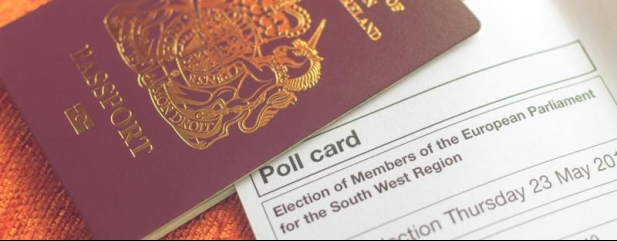Archived article
Please note that tax, investment, pension and ISA rules can change and the information and any views contained in this article may now be inaccurate.
What could the next general election mean for UK equities?

Given the rate at which prime ministers (and chancellors of the exchequer) seem to come and go, investors may be inclined to avoid second-guessing the result of the next general election, even as the Conservatives’ Rishi Sunak drops hints of an autumn ballot, and the opposition Labour Party starts to finalise its manifesto.
The lack of available cash in the Government’s kitty, the Conservatives’ occasionally frayed relationship with ‘business’ and the likelihood that Labour took on board Trussonomics’ lesson that unfunded promises could prompt chaos may all mean that investors could be in the mood to take Sir Keir Starmer’s big lead in the polls, and any eventual victory, in their stride.
The current Conservative Government, whose tenure dates back to 2010 and covers a flurry of five prime ministers, could be seen as having taken an increasingly interventionist approach to the economy, given such initiatives as sugar taxes, Help to Buy, energy price caps, windfall taxes on North Sea oil producers, 2021’s National Security and Investment Act and additional levies on housebuilders’ profits.
Increasingly vocal and forceful regulators, such as the Financial Conduct Authority, Ofcom, Ofgem, Ofwat and the Competition and Markets Authority, also appear to be responding to public pressure for greater action, and perhaps the hardest part for investors going forward will be spotting which industry or sectors will come under scrutiny next, in the wake of such recent examples as betting, funeral services and veterinary services.
Investors may nevertheless be tempted to look at the FTSE All-Share’s history since its launch in 1962 to see if the 16 general elections and 13 prime ministers over that timespan offer any clues as to what may happen this time around.
UNLUCKY FOR SOME
A study of all 16 polls and 13 national leaders suggests the following:
A change of government, and defeat for the incumbent is not necessarily a bad thing for UK equities.
The UK stock market has, on average, done better under Conservative governments in nominal and particularly in real, post-inflation terms.
Size of majority is of little concern to the stock market (even if it is hugely important to the PM) and a much greater factor for investors is inflation.
Ultimately the economic backdrop is ultimately the real key, rather than the identity of the PM or their political persuasion. The 1974-79 Labour administration that began under Harold Wilson and ended under James Callaghan started off with a tiny majority but on paper generated healthy returns for the FTSE All-Share, which rocketed. However, once those returns take a spiral in the RPI measure of inflation into account (and RPI is used as it offers a longer history than CPI), then investors actually lost out in real terms, in what was a difficult decade for shareholders, owing to the ravages of inflation.
THE ECONOMY, STUPID
This is to make an economic point, rather than a political one. As former US President Bill Clinton’s strategist, James Carville, argued ahead of the then Arkansas Governor’s 1992 election win. ‘It’s the economy, stupid.’ If the voters feel flush, they are more likely to vote for the incumbent government and less so if not and inflation is a key part of that.
The galloping inflation of the 1970s, and subsequent labour unrest, did for both the Tories’ Ted Heath in 1974 and Labour’s James Callaghan in 1979. In the latter case, public appetite for a change of tack was particularly strong and ushered into power the nation’s first female prime minister.
Gordon Brown had little or no chance, having had the bad luck to preside over the Great Financial Crisis of 2007-09 and Tony Blair’s second term coincided with the bursting of the technology, media and telecoms bubble, the blame for which could not be laid at Downing Street’s door under any circumstances.
What will be interesting this time around is the degree to which inflation and the economy shape public thinking once more. The Brexit vote dealt Theresa May a difficult hand and the pandemic gave Boris Johnson a dud one, but the public will remember inflation and the cost-of-living crisis. Regardless of whether they blame that on the Bank of England’s monetary experimentation, supply chain dislocations caused by the pandemic, the oil price spike that followed Russia’s invasion of Ukraine, or just stick it on the Government may be a crucial factor in how the next general election plays out and how stock, bond and currency markets subsequently respond.
Important information:
These articles are provided by Shares magazine which is published by AJ Bell Media, a part of AJ Bell. Shares is not written by AJ Bell.
Shares is provided for your general information and use and is not a personal recommendation to invest. It is not intended to be relied upon by you in making or not making any investment decisions. The investments referred to in these articles will not be suitable for all investors. If in doubt please seek appropriate independent financial advice.
Investors acting on the information in these articles do so at their own risk and AJ Bell Media and its staff do not accept liability for losses suffered by investors as a result of their investment decisions.
Issue contents
Editor's View
Exchange-Traded Funds
Feature
Great Ideas
News
- Blow-out US jobs report sends stocks higher despite implications for rates
- Tesla shares slide in 2024 as investors mull their next moves
- Elementis shares soar after receiving a preliminary bid from US fund
- Ferrari gets into top gear to buck softer luxury goods trend
- Meta Platform’s dividend call stuns the market
- Can British Gas owner Centrica continue to deliver?
 magazine
magazine








